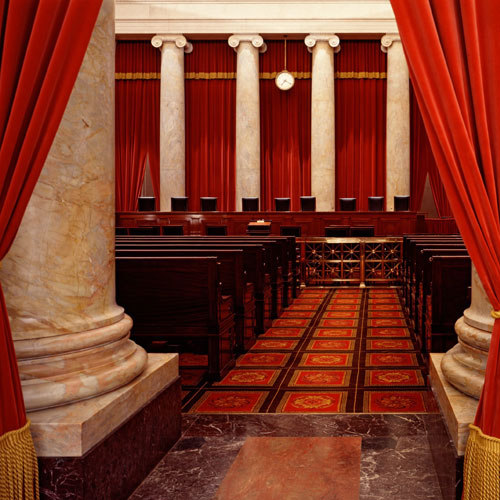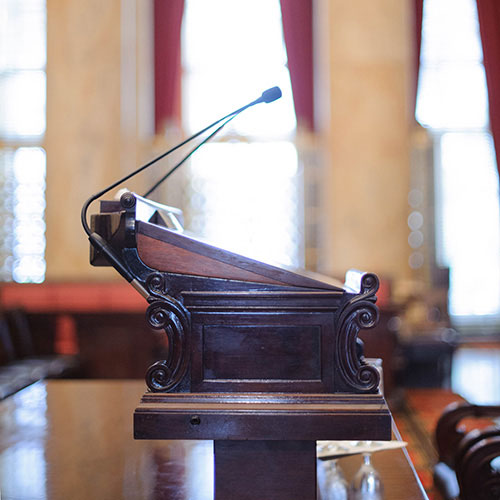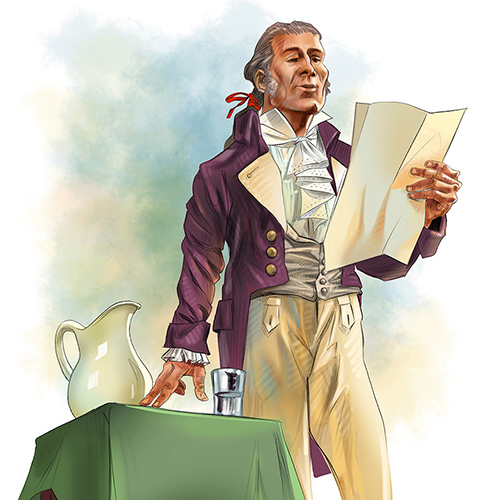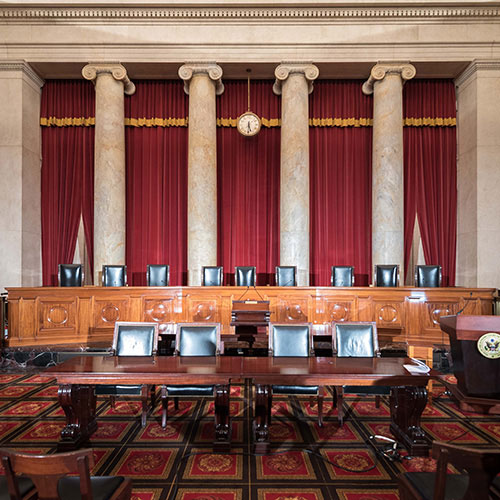View Event Online:
Original Event Information:

Professor José Anderson, Dean Joseph Curtis Professor of Law, University of Baltimore School of Law
In celebration of Law Day 2024, the Society is hosting Professor José Anderson, the author of Genius for Justice, to discuss Charles Hamilton Houston and the Supreme Court Justices He Knew on April 30, 2024, at noon in a virtual lecture.
Charles Hamilton Houston was the first special counsel for the NAACP and the Dean of the Howard University Law School. He was a mentor and colleague of Thurgood Marshall. During his path-breaking career, he helped develop the strategies the NAACP Legal Defense Fund used to dismantle discriminatory laws and argued several cases before the Supreme Court of the United States. During his life and career, he interacted with several Supreme Court Justices and this lecture will examine his interactions with them, including Oliver Wendell Holmes, Felix Frankfurter, and Tom Clark.
Professor José F. Anderson is the Dean Joseph Curtis Professor of Law at the University of Baltimore School of Law. After graduating from the University of Maryland Francis King Carey Law School in 1984, where Anderson served as Editor-in-Chief of the Maryland Law Forum, he engaged in private practice for several years handling various litigation matters. For nearly ten years he worked in the Maryland Public Defender’s Office where he held positions as Supervising Attorney of the Appellate Division, Special Assistant Public Defender, and “in-house” counsel to the 400 lawyer 700 employee agency. Throughout his career he has been involved in the trial and appeal of many high-profile cases, among them several death penalty cases in Maryland’s highest court, the United States Court Appeals for the Fourth Circuit and the Supreme Court of the United States.
After years of practicing law, he joined the full-time faculty at the University of Baltimore School of Law where he is the Dean Joseph Curtis Professor of Law. He was the Founding Director of the school’s Center for Litigation Skills from 2000- 2008. He received the University System of Maryland’s Regent’s Faculty Award for Mentoring in 2006 (the higher education system’s highest honor) and the Maryland Bar Foundation Award for Advancement of Unpopular Causes. He served as Chair of the Maryland State Bar Association Section Council on Criminal Law and Practice, has co-authored a casebook on Criminal Law, has written a host of scholarly articles, and was elected to the prestigious American Law Institute in 2002.
Professor Anderson is also an affiliated faculty member at the University of Pennsylvania’s Wharton School where he has been appointed Adjunct Professor of Legal Studies and Business Ethics since 2003 and teaches courses on Diversity and the Law and Business Ethics. He has served as a faculty member of the National Judicial College and was the Founding President of the Cole/Davidson National Inn of Court (Appellate Chapter) in 2022. He is the author of a recently published book entitled “Genius for Justice: Charles Hamilton Houston and the Reform of American Law” (Carolina Academic Press 2022). You can purchase his book here.
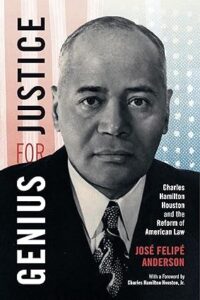
The Society began commemorating Law Day with lectures in 2021. Professor Joel Richard Paul joined us in 2021 for a conversation and lecture on his book, Without Precedence, on Chief Justice John Marshall. The 2022 lecture from Professor Jonathan Lurie and the 2023 lecture from Professor John Mikhael are available on the Society’s YouTube page.
Law Day began with an idea from the then-President of the American Bar Association, Charles Rhyne, that there needed to be a celebration of the rule of law in American life. President Dwight D. Eisenhower embraced the idea and designated May 1, 1958, as the first Law Day. Congress codified Law Day in 1961.
Included in the text of the statute: Law Day, U.S.A., is a special day of celebration by the people of the United States— (1) in appreciation of their liberties and the reaffirmation of their loyalty to the United States and of their rededication to the ideals of equality and justice under law in their relations with each other and with other countries; and (2) for the cultivation of the respect for law that is so vital to the democratic way of life.
